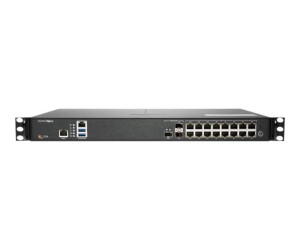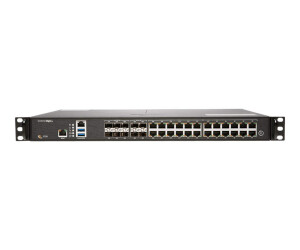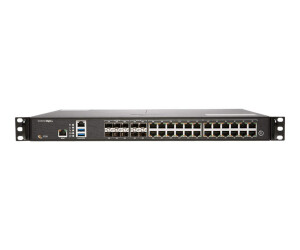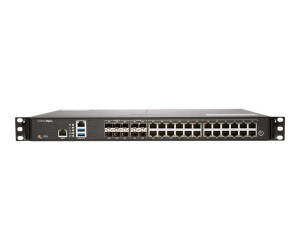







Dynamic Host Configuration Protocol (DHCP) is a network protocol used in computer networks to automatically assign IP addresses to clients. It enables efficient and automated configuration of network devices by dynamically assigning them the required network settings. DHCP provides a flexible and scalable method for IP address allocation, eliminating the need for manual configuration and management of IP addresses in a network.
The DHCP process begins when a client computer or other network device connects to the network and requires an IP address to participate in the network. The client sends a DHCP "Discover" broadcast packet to the network to find a DHCP server. This broadcast packet contains information indicating that the client needs an IP address and other configuration details such as subnet mask, default gateway, and DNS servers.
One or more DHCP servers in the network receive the "Discover" packet and respond with a DHCP "Offer" packet. The "Offer" packet contains an IP address that can be assigned to the client, along with other configuration parameters. If multiple DHCP servers are present, the client can choose from the offers and select the best one.
Once the client receives the "Offer" packet, it sends a DHCP "Request" packet to the selected DHCP server. The "Request" packet contains the information about the IP address that the client has accepted. The DHCP server responds with a DHCP "Acknowledge" (ACK) packet, confirming the final assignment of the IP address and configuration details to the client.
The client takes the assigned IP address and configuration details from the ACK packet and uses them to configure itself on the network. The client periodically sends DHCP "Renewal" requests to the DHCP server to renew the assigned IP address and ensure its validity. This way, the IP address allocation is periodically renewed and managed.
DHCP also supports the allocation of dynamic IP addresses, where the IP address can be released after a certain period of time and assigned to another client. This allows efficient utilization of available IP addresses in the network, especially in environments with many clients where not all of them are active simultaneously.
In addition, DHCP provides additional features such as support for DHCP options, which can include additional configuration parameters such as NTP servers, DNS search lists, and other network settings. DHCP also allows the definition of IP address ranges from which the IP addresses for assignment are selected, as well as the reservation of specific IP addresses for specific devices.
An important advantage of DHCP is that it simplifies network administration, particularly in large networks. Instead of manually configuring each device, network settings can be centrally managed and automatically distributed to the clients. This saves time and reduces errors in manual configuration.
However, there are also some potential drawbacks and challenges when using DHCP. For example, there may be security concerns if an unauthorized DHCP server is present in the network and distributes incorrect configuration information to clients. To avoid such issues, security mechanisms like DHCP snooping are often implemented to control access to DHCP servers.
Advantages of DHCP:
Efficient IP address management: DHCP enables automatic and efficient assignment of IP addresses to network devices. By eliminating the need for manual entry of IP addresses, it saves time and reduces the risk of errors.
Centralized management: DHCP allows centralized management of IP addresses. A DHCP server takes care of IP address assignment and management for the entire network. This simplifies network management and scalability, especially in large environments.
Flexibility in IP address assignment: DHCP provides various options for IP address assignment. In addition to automatic assignment, reserved addresses can be set for specific devices to ensure consistent IP configuration. DHCP also supports temporary allocation of IP addresses to enable efficient utilization of the available IP address pool.
Easy network configuration: By using DHCP, there is no need to manually configure the IP settings on each network device. The devices can be simply configured to obtain their network settings automatically from the DHCP server. This facilitates the configuration of new devices and simplifies the movement of devices within the network.
Time savings in administration: Since DHCP handles the automatic assignment and management of IP addresses, it saves time and effort for network administrators. Manual assignment and monitoring of IP addresses are eliminated, reducing management tasks and increasing efficiency.
Disadvantages of DHCP:
Single point of failure: If the DHCP server fails or becomes unreachable, new devices cannot receive IP addresses or update their configuration. This can lead to network outages or connectivity issues. To minimize downtime, it is advisable to deploy redundant DHCP servers.
Dependency on network infrastructure: DHCP requires a functioning network infrastructure to operate effectively. Disruptions or failures in the network infrastructure can affect communication with the DHCP server and impact the IP configuration of devices.
Potential security risks: DHCP enables automatic assignment of IP addresses to devices on the network. This can introduce security risks if unauthorized devices gain access to the network. It is important to implement appropriate security measures to protect DHCP configuration and prevent unauthorized access.
IP address conflicts: In some cases, IP address conflicts may occur when multiple devices in the network are assigned the same IP address. This can lead to connectivity issues and requires manual resolution of the conflict.
Limitations in specific network requirements: DHCP works well for most networks, but there are certain scenarios where specific IP configuration requirements exist. In such cases, manual IP configuration may be necessary instead of using DHCP.
DHCP is a powerful network protocol that enables dynamic allocation of IP addresses and other network configurations. It automates the process of network configuration and facilitates the management of IP addresses in computer networks. By leveraging DHCP, network administrators can increase efficiency, reduce errors, and improve scalability.



| id | title | mpn | price | manufacturer |
|
from *
/ |

